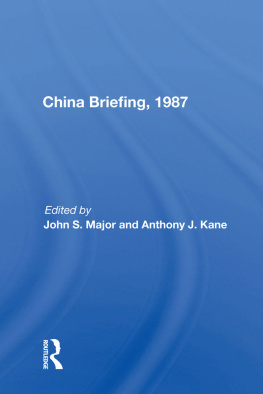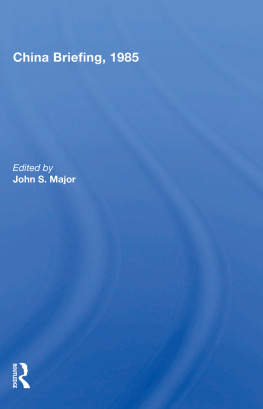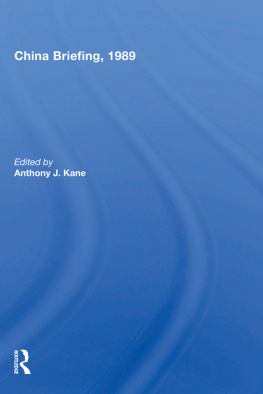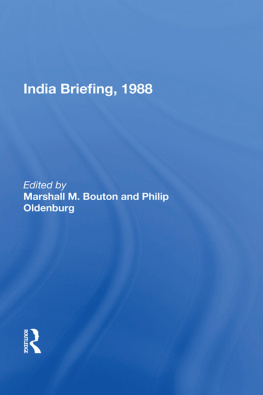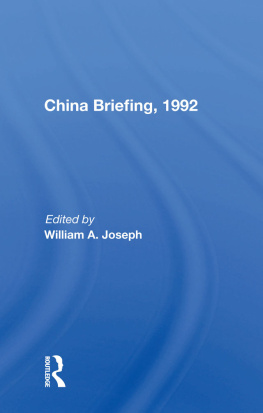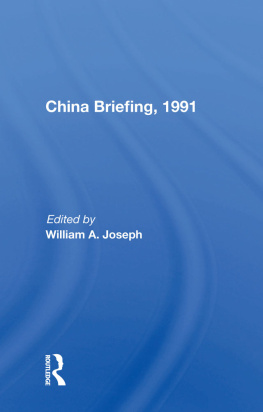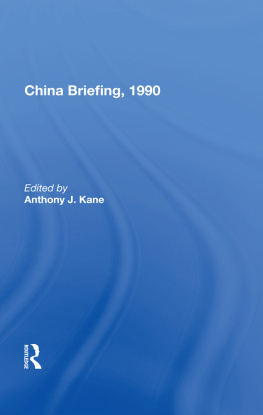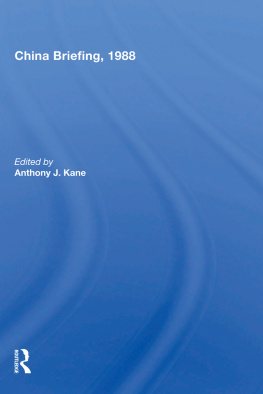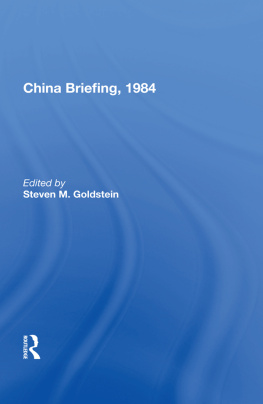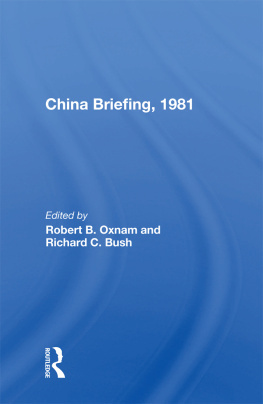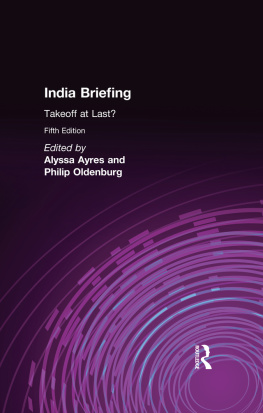About the Book and Editors
The year 1986 marked the tenth anniversary of the death of Mao Zedong and the fall of the Gang of Four. A decade after the end of the Cultural Revolution, China experienced the consolidation of rural economic reform, continued progress in urban reform, a widening of the "open door" to the west, and, perhaps most important, the seemingly irreversible impact on Chinese society and culture of Deng Xiaoping's new policies. The political consequences of reform continued to create problems, as was seen at year's end in a dramatic series of student demonstrations and the disciplining of several high party officials and intellectuals.
This annual volume reviews the events and trends of the year in foreign relations, domestic politics, the economy, foreign investment and technology transfer, defense, and culture. A separate chapter provides an overview of events in Taiwan. Complementing these essays by distinguished China scholars is a chronology of significant events and a selection of important documents published during 1986. The book is ideal for course use and is essential reading for travelers bound for China, business executives, journalists, and China watchers in general.
John S. Major is assistant director of The Asia Society's Department of Performances, Films, and Lectures. Anthony J. Kane is director of the China Council of The Asia Society.
China Briefing, 1987
edited by
John S. Major and Anthony J. Kane
Published in cooperation with the China Council of The Asia Society
First published 1987 by Westview Press, Inc.
Published 2018 by Routledge
52 Vanderbilt Avenue, New York, NY 10017
2 Park Square, Milton Park, Abingdon, Oxon OX14 4RN
Routledge is an imprint of the Taylor & Francis Group, an informa business
Copyright 1987 by The Asia Society
All rights reserved. No part of this book may be reprinted or reproduced or utilised in any form or by any electronic, mechanical, or other means, now known or hereafter invented, including photocopying and recording, or in any information storage or retrieval system, without permission in writing from the publishers.
Notice:
Product or corporate names may be trademarks or registered trademarks, and are used only for identification and explanation without intent to infringe.
Library of Congress ISSN: 0740-8005
ISBN 13: 978-0-367-00686-0 (hbk)
ISBN 13: 978-0-813-30499-1 (pbk)
Contents
LOWELL DITTMER
THOMAS R. GOTISCHANG
DENIS FRED SIMON
SAMUEL S. KIM
HARLAN W. JENCKS
RICHARD KRAUS
HUNG-MAO TIEN
The year 1986 is likely to be seen, in retrospect, as one of great significance in recent Chinese history. In the People's Republic, the Dengist reform movement faced a crucial test as economic change seemed inevitably to lead to pressure for political change as well. The leadership's sometimes halting and vacillating responses were apparently a sign of serious disagreements at the top; student unrest, the imposition of party discipline on some prominent intellectuals, and the sacking of Hu Yaobang only hinted at new struggles in the year to come. In Taiwan, a promised end to martial law and the formation of opposition political parties pointed toward a new political climate in the coming post-Chiang era; most observers saw both opportunity and danger in the relaxation of military and one-party rule. These events and many others are surveyed in the chapters of China Briefing 1987.
The China Council, a program of The Asia Society's Contemporary Affairs Department, is a non-profit, non-partisan educational organization dedicated to providing to the American public timely, accurate and impartial information on China and US-China relations. Through the publication of an annual China Briefing, the China Council attempts to disseminate to the widest possible audience a digest of essential information on China for the year under review. The editors hope that students, businesspeople, policymakers, travellers, and others who require up-to-the-minute information on China will find each year's China Briefing well suited to their needs.
As has been our practice in recent years, all of the chapters in this book have been specially commissioned and have not been published previously. In addition to our annual coverage of domestic politics, foreign affairs, the economy, and Taiwan, our briefing this year contains special chapters on culture, foreign investment and technology transfer, and the military. Each year's China Briefing is intended both to stand on its own and also to form part of a series. Readers requiring special information on such topics as agricultural reform or education are therefore advised to consult the relevant chapters in earlier volumes in the series.
With this year's volume, the title of China Briefing has been changed to reflect the year of publication rather than the year of reference. This conforms to what increasingly has become standard practice in the publication of annual surveys of this kind. China Briefing 1987 therefore follows directly upon China Briefing 1985; the series will not contain the title "China Briefing 1986." We regret any inconvenience caused to librarians and bibliographers in this transitional year.
We wish to extend our thanks to the authors of the chapters herein for producing concise and comprehensive surveys of their topics under very stringent constraints of time. We are grateful also to Patty Farr, who compiled the annual chronology and provided valuable editorial assistance, to Lorri Kaye, Chip Gagnon and Owen Crowley for their fast and accurate work in preparing the final manuscript, and to Susan McEachern of Westview Pressas alwaysfor being everything that an author could want in an editor.
John S. Major
Anthony J. Kane

1
China in 1986: Domestic Politics
Lowell Dittmer
For the People's Republic of China, 1986 was a year of wrenching change, no less surprising for its Chinese participants than for outside observers. Having managed to telescope into a mere eight years without serious mishap a series of reforms it took Eastern Europeans several decades to evolve, China in early 1986 seemed well on its way towards becoming a Newly Industrialized Country (NIC), quite possibly by the end of this century. The trend continued through much of 1986, as rapid economic growth was joined by ambitious plans for ideological and political structural reform. However, these sweeping projections were not immediately greeted by the legislation they seemed to require, and the ensuing climate of unmet expectation soon generated the most widespread spontaneous protests since the 1976 Tiananmen demonstrations in support of Zhou Enlai (and then-disciple Deng Xiaoping).
Concern that young Chinese were bored with politics, as indicated for example by polls showing greater interest in careers, or difficulties in recruiting new Communist Youth League members, seemed under the circumstances misplaced. Yet activist street politics proved unacceptable to the elite, who brought the year to a close with a crackdown on the demonstrations and severe organization sanctions against their putative elite backers. Seizing their day, China's Old Guard has launched a vigorous resurgence to fill the political vacuum.





